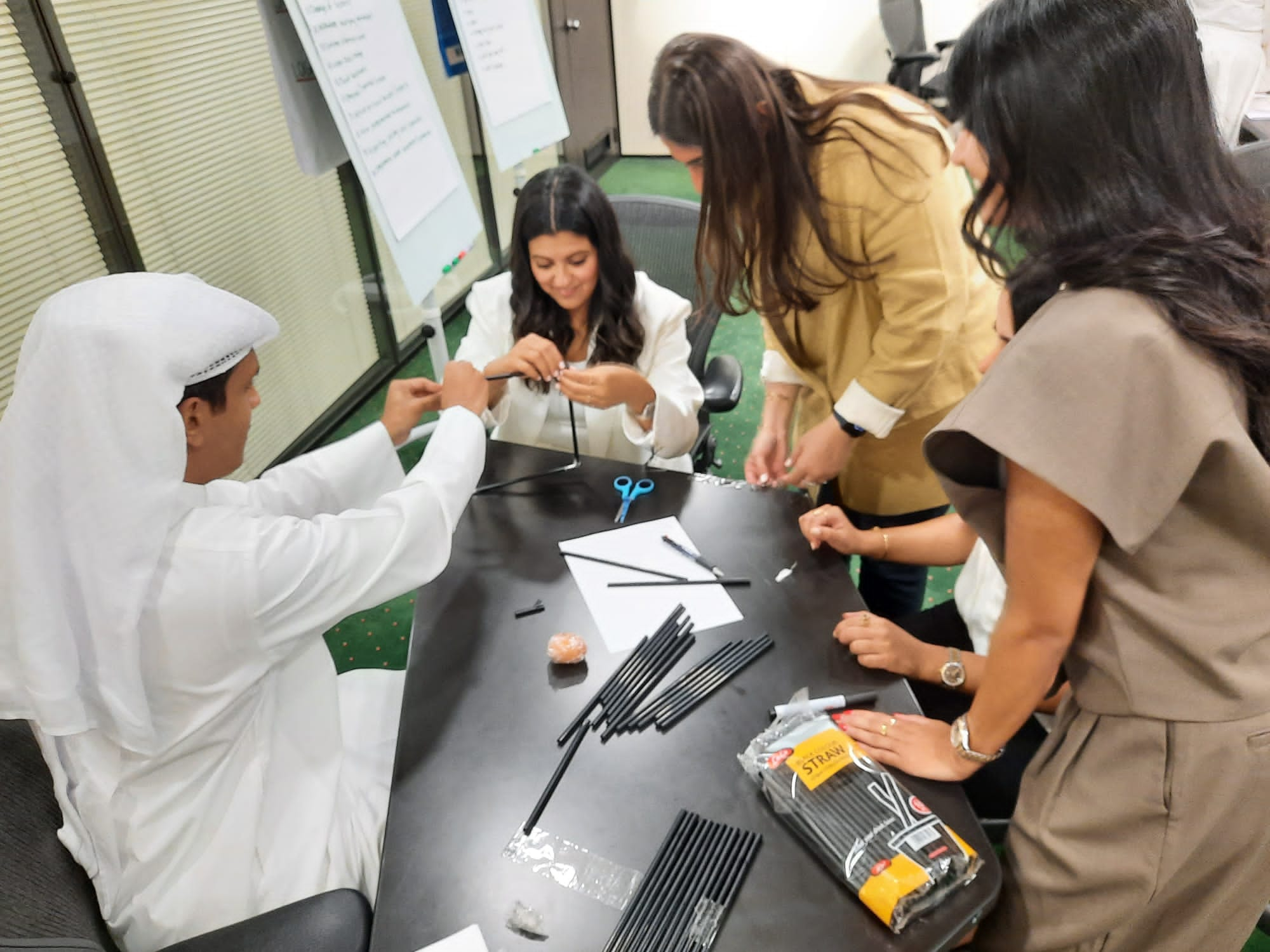Leadership Agility & Building Resilience
For Organisations Only
In-house training
- Face-to-face (flexible structure <15 people)
- Live virtual (flexible structure <15 people)
- Conferences and events (<500 people)
- Webinar (1hr introduction <1000 people)
- With or without actors
- Fully customisable
Encouraging Leadership Agility and Building Resilience – 2 Days
We live in a world of constant, unpredictable change and it’s widely accepted that traditional approaches to management and leadership are becoming increasingly less effective.
By exploring our own agility and resilience as leaders, this two-day course, connects leaders with the capabilities required to lead in complex and uncertain environments. The participants will consider how they can empower their teams, support the vital role of line managers and supervisors, and set clear actions to develop sustainable initiatives.
Course Content
How agile am I?
This activity explores our individual agility and resilience. By exploring a series of challenging questions, we develop a collective understanding of agile leadership principles and where we each sit against nine markers of agile leadership.
Leadership capabilities for agility and resilience
We dig a bit deeper into the principles of agile leadership and begin to focus on the three Cs of agile leadership: communication, commitment, and collaboration. We explore the continuum of agile leadership, highlighting it is something that changes and develops over time.
Empowering my team – how to make space for agility and resilience
Through discussion we consider how to overcome resistance and inspire a growth mindset, with everyone involved, to encourage agility at all levels of the organisation.
We also reflect on the importance of promoting good mental health, supporting teams working virtually, and encouraging a supportive culture to build workplace resilience.
Exploring the difference between change management and agility
As leaders in an ever-changing work environment, we have a responsibility to develop the confidence to successfully lead on organisational change. We explore the benefits and drawbacks of different approaches to managing change.
Supporting the vital role of supervisors and line managers
When workplaces experience rapid change, supervisors and line managers play a critical role in supporting people’s wellbeing. Employee support is directly linked to workforce resilience, so the effectiveness and emotional intelligence of both supervisors and line managers is essential to build workforce resilience. We explore what leaders can do to support other key people in critical roles.
Developing sustainable initiatives activity
For a workforce to be resilient, you need to have and workforce that is empowered to challenge things when they’re not quite right. This activity looks forward and explores initiatives leaders can implement to build and sustain resilience and agility both for themselves and team members around them.
Let's get started...
Contact us with your availability for a call and we will send you a proposal, programme outline and quotation for your learning and development project.
Use Actors in Your Training
Through clever script writing, goose-bump inducing delivery and professional facilitation we can bring so much to life. We stimulate emotion, penetrate the long-term memory and create lasting change.
When we use live drama, we are able to have the actors play out the scenario and then be hot seated for the audience to ask them questions whilst they remain in character. Hot seating works so well because actors work with a pre-rehearsed backstory, so they are able to respond in character. They progressively reveal unexpected elements of their story that will not have previously been told. It can bust assumptions that the audience might have made based on the scenario (situation) but not fully understanding the impact at first sight.
Using actors in this programme enables us to bring to:
- See a typical situation from a different perspective
- Give attendees a chance to challenge the actors whilst they are still in character
- Demonstrate that things aren’t always what they seem at first glance
- Provide delegates with an opportunity to test out alternative ways of approaching different situations
- Create an experience which stays in the long-term memory
Case Study

Kuwait Fund for Arab Economic Development
Upskilling engineering, architectural and bio-medical graduates“I want to take the chance to thank you again for this wonderful course, it’s been my absolute pleasure and honour to be trained by you. I honestly learned a lot during this week, I hope we will keep in touch.”
READ CASE STUDY